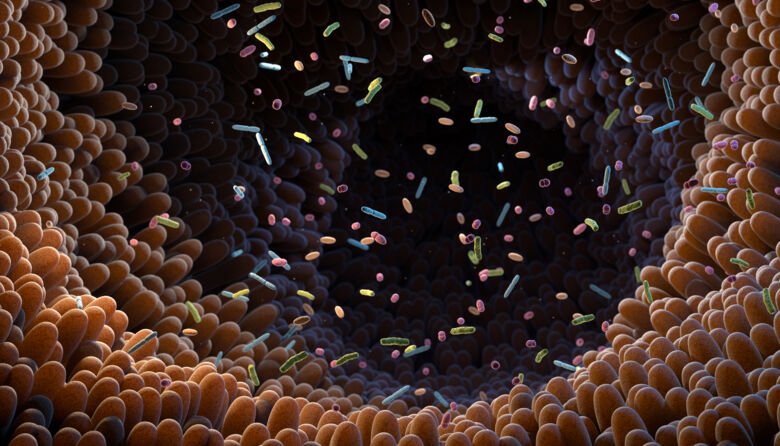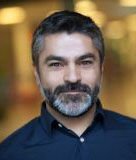Eduardo Villablanca receives ERC Synergy Grant for research that may explain severe intestinal diseases

The project CartoHostBug (Funtional cartography of intestinal host-microbiome interactions) has been awarded an ERC Synergy Grant of EUR 10 million, which is shared between four researchers, among them Eduardo Villablanca, senior researcher at Karolinska Institutet. The aim of the project is to map how disturbances in the gut microbiome can lead to inflammatory bowel disease and colorectal cancer.
Tell us about the research project.

"We're investigating how interactions between the microbiome (microorganisms in the body) and the host (human) affect health and diseases. Most of these interactions happen in the gut, where a diverse microbiome resides. Disruptions in these interactions may lead to gut-related diseases like inflammatory bowel disease (IBD) and colorectal cancer (CRC)", says Eduardo Villablanca, principal researcher at the Department of Medicine at Karolinska Institutet in Solna.
"Many studies have associated the microbiome with gut-centric and extraintestinal diseases; however, many of these studies remain controversial as they use stool samples, which don't represent what is going on in the tissue."
"We aim to fill this knowledge gap by exploring host-microbe interactions at the molecular level and at high resolution in the right tissue. Our team which, besides me, consists of Stefania Giacomello at KTH (Royal Institute of Technology), Sweden, Julio Saez-Rodriguez at University Hospital Heidelberg, Germany, and Georg Zeller at the European Molecular Biology Laboratory, Germany, will develop technologies to create a detailed, highly resolved map of host-microbiome interactions in intestinal tissues during health and disease."
Describe the application process.
"Over two years ago, we initiated the project idea and formed a team of experts in microbiome and data analysis. We brainstormed the project's goals. A year before submission, we involved our lab members who generated preliminary data. We collaborated closely with the Karolinska Institutet Grants Office and submitted a proposal we were satisfied with. We also underwent multiple mock interviews and met in Stockholm to prepare questions and answers."
"We have many people to thank for their help in this process, especially our lab members who worked on generating the preliminary data."
What does the grant mean to you?
"This grant will allow us work on our exciting project in the best possible conditions, something we couldn't do without this funding. We can spend time and resources to tackle a complex question in the field, seeing in detail for the first time how microbes and human cells work together in the gut."
"Furthermore, this grant is highly competitive, and winning it means that many experts in our field will believe in our project. This is important because our project involves different areas of expertise, and it shows that our question is relevant and has broad implications."
What do you expect to have achieved after the project’s six years?
"We plan to create the first detailed functional map of how microbes and our bodies interact in the gut. We'll also investigate cause and effect relationships and make predictions using computational models."
"We hope to push boundaries in the fields of microbiology and mucosal immunology and change the way we study host-microbe interactions. Finally, we aim to use this knowledge to develop new and improved ways to treat gut diseases more effectively."
The ERC Synergy Grant
The ERC Synergy Grant is a grant scheme that supports small teams of scientists intending to address major research problems. This year, thirty-seven research groups will receive €359 million in total to address some of the world’s most formidable research problems spanning a range of scientific disciplines.
The ERC Synergy Grant helps groups of researchers to pool different skills, knowledge and resources to achieve progress through the cross-fertilisation of scientific disciplines, new productive points of inquiry or new methods and techniques. The ERC Synergy Grant scheme is part of the EU's research and innovation programme, Horizon Europe.
